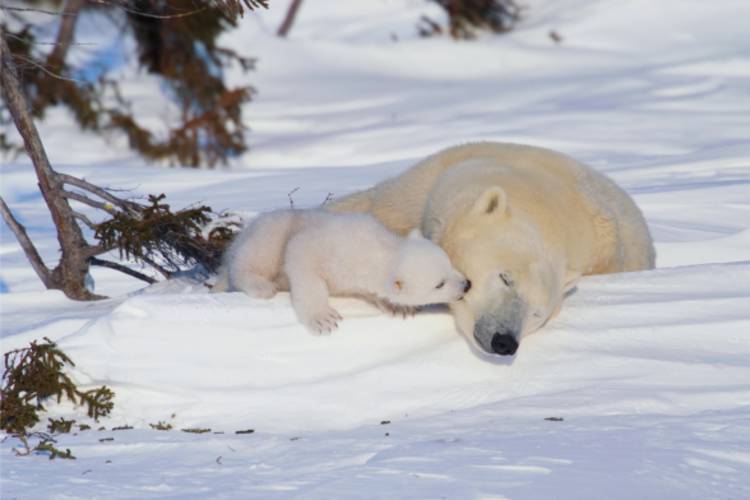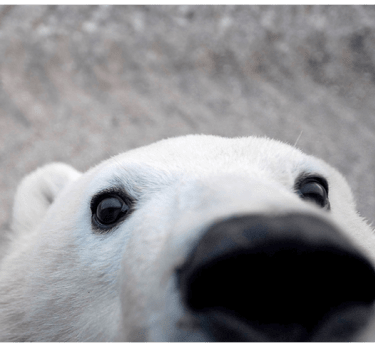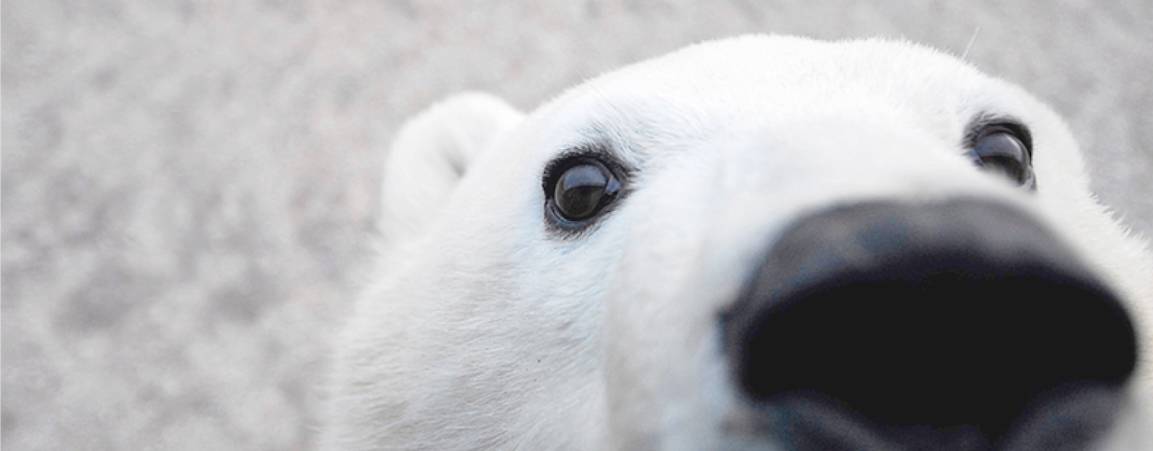Activity 3D: Apply
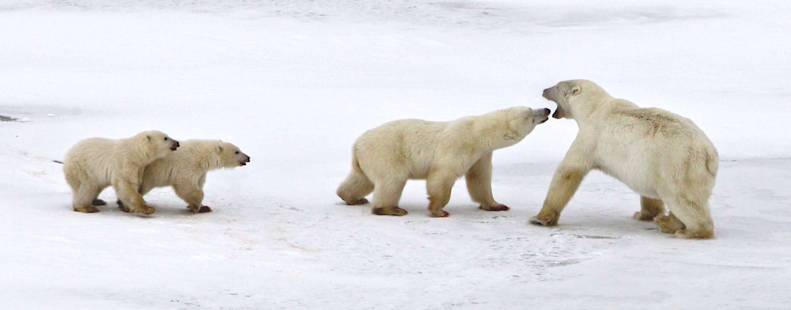
Photo: Mike Lockhart / Polar Bears International
What are the most common misconceptions about polar bears and climate change?
Could floating platforms be used to save the polar bear from ice losses?
I’ve seen some news reports about a global warming hiatus. Does that mean global warming has ended? Is that good news for polar bears?
Polar bears are much older than previously thought. Does this mean they'll able to survive climate change?
Are the recent sightings of polar bear-grizzly hybrids in Canada due to climate change? Will this help save polar bears?
Why is polar bear hunting allowed?
Can't polar bears simply move north where the ice isn't melting? If not, why?
How did polar bears survive earlier warming trends?
Can polar bears survive by eating goose eggs?
Can we save polar bears by moving them to Antarctica?
Could polar bears learn to hunt like grizzlies?
Why all the fuss about polar bears? Aren't their populations booming?
Are Canadian scientists opposed to listing the polar bear as threatened, as some news organizations have reported?
These can be tripping points that cause some individuals to not act (you will learn more about tripping points in the months to come!). They gather an incomplete piece of information from the media and it creates a question of credibility for the communicator. PBI has compiled answers to each of these questions from our Scientists.
We'd also like to share with you a study that examines the common misconception that terrestrial foods could be enough for polar bears. While it may be tempting for the public to think that polar bears could survive by switching to land based foods, this paper establishes in no uncertain terms that terrestrial food sources do NOT offer any hope for polar bears in the absence of sea ice. The research team compared the nutritional needs of polar bears, which have evolved to prey on fat-rich seals, with the nutrients of land-based foods.
They also addressed the rate of occurrence of terrestrial feeding in some populations and the inability of the food-poor tundra environment to support whole populations of the world's largest bears. The scientists found that while some individual bears may temporarily benefit from eating energy-rich foods like bird eggs, these aren't abundant enough to have an impact at the population level. And other possible foods, like small mammals and vegetation, don't meet the polar bear's nutritional requirements.
Another study calculated that a polar bear would need to consume approximately 1.5 caribou, 37 Arctic char, 74 snow geese, 216 snow goose eggs (i.e., 54 nests with four eggs per clutch) or 3 million crowberries to equal the digestible energy available in the blubber of one adult ringed seal.
A recent study (that used cameras mounted to satellite collars on polar bears during the ice-free season in Western Hudson Bay) found that even when bears that foraged on terrestrial foods, they lost the same amount of body mass as bears that didn’t forage at all - highlighting that land-based foraging provides little benefit and is insufficient to support a polar bear’s energy needs.
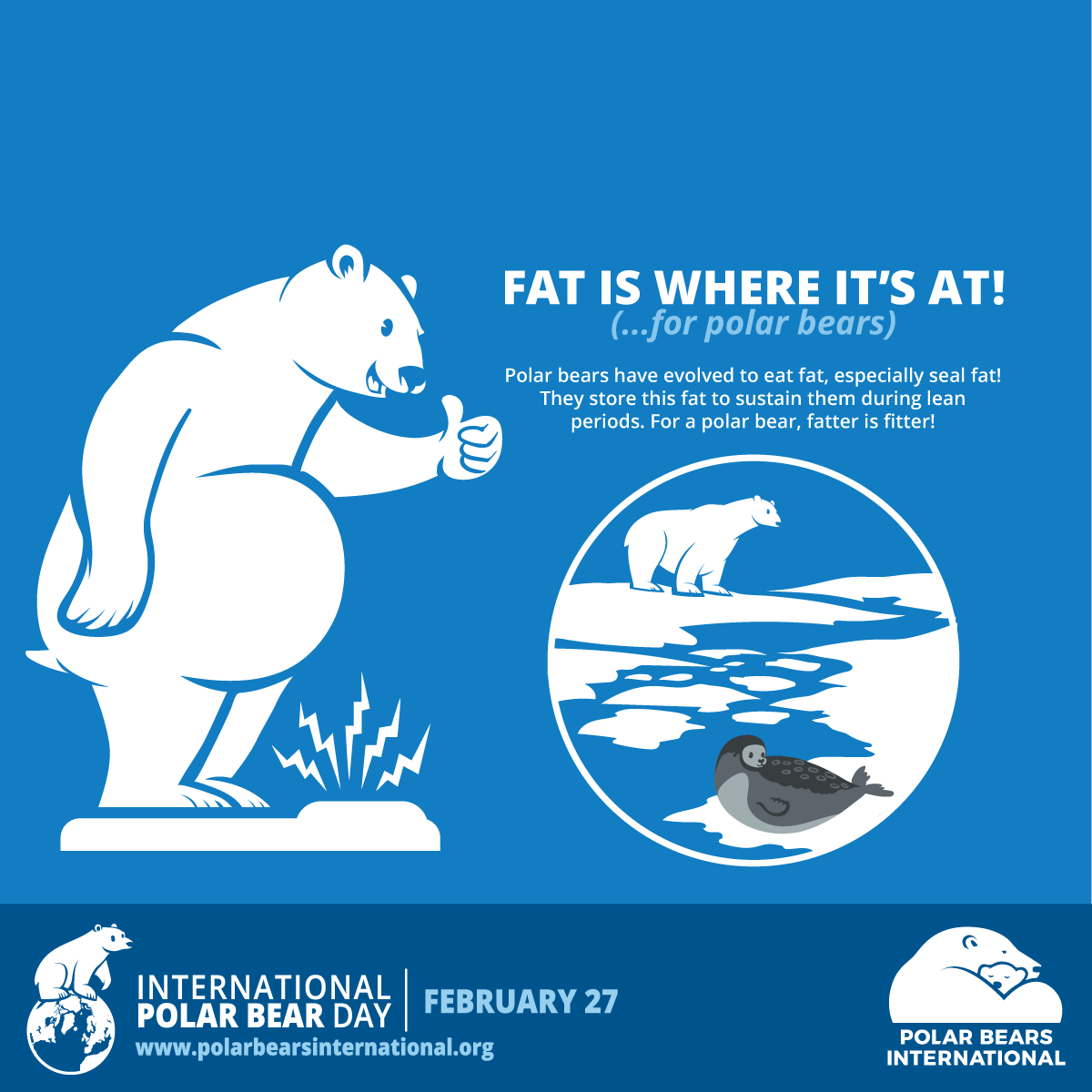
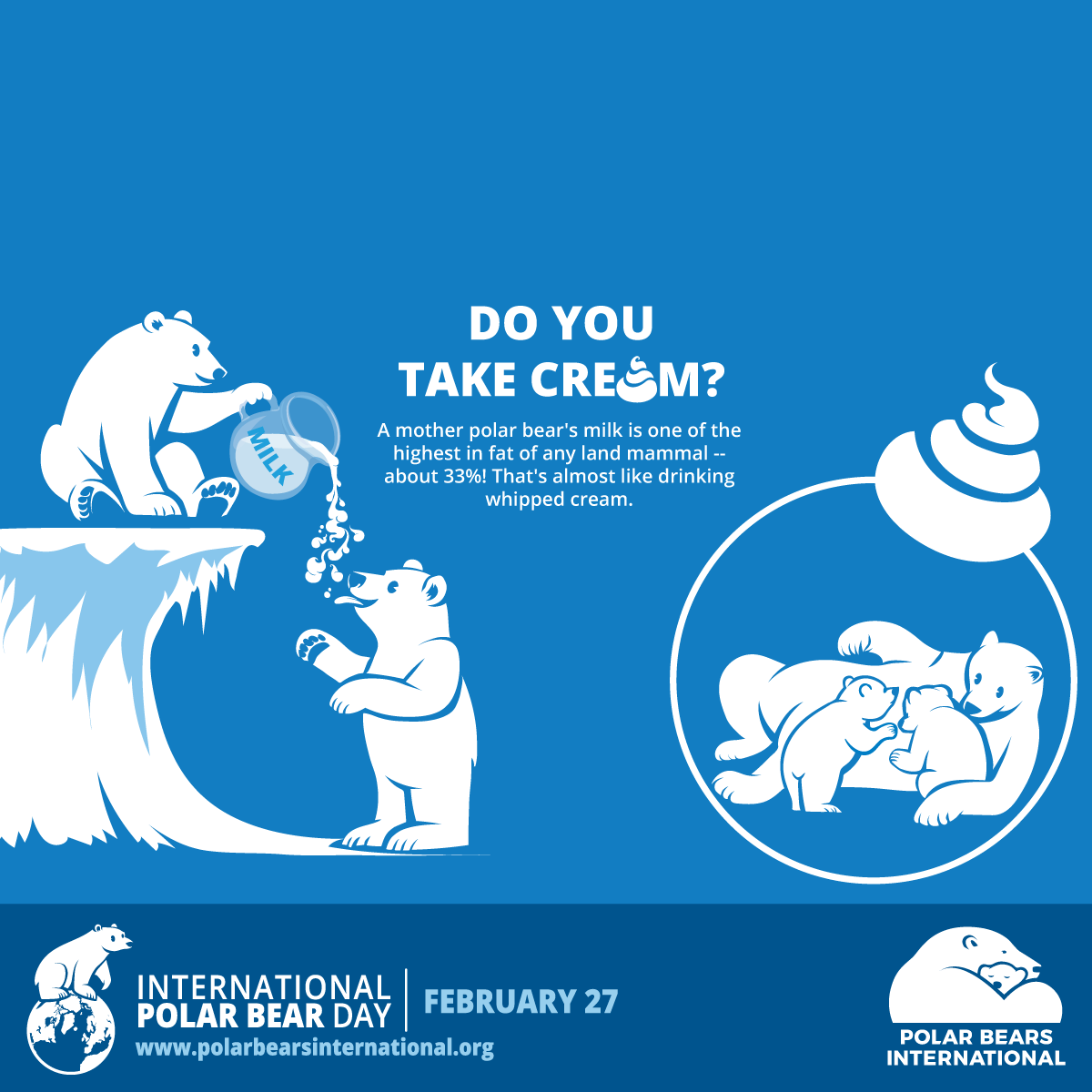
Step Two
Polar Bears and the Climate Denial Machine
Why do climate denier blogs focus on polar bears asserting that (a) the bears are fine or (b) sea ice isn’t melting? It’s all part of a web of deceit designed to cast doubt on the scientific consensus behind global warming.
A paper written by a diverse team of scientists, including PBI’s chief scientist, Dr. Steven Amstrup, examines the misinformation about polar bears published in internet blogs that deny climate change. The paper examines why deniers choose to focus on polar bears, how they succeed in confusing the public, and what we can do to combat that confusion.
REFLECT: Do you notice these misconceptions in from guests or social media viewers. What is your general approach for confronting misconceptions? Do you correct them, link to literature, bridge and pivot, delete comments??
Please share in the Discord community so we can learn from one another, and add some more tools to our toolbox.
Give it a shot:
What's one way you might create content to address some of these misconceptions listed above without using a "Myths vs. facts" strategy that often subtly reinforces the myths through repetition and further increases the spread and acceptance of misinformation? Share your ideas in the Discord community!
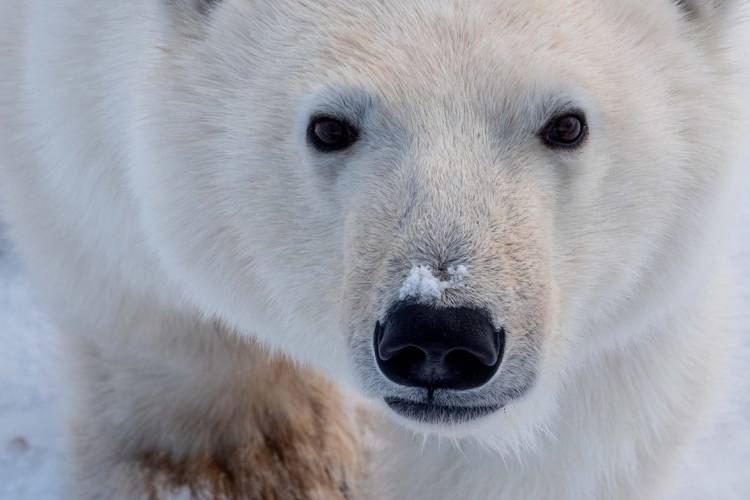
Photo: Kieran McIver / Polar Bears International

Finished?
Continue on to Activity Four: Working with your AAC Team!
